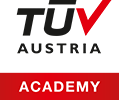Henning Bergmann is Head of Operations at TÜV TRUST IT in Cologne and has been with the company since it was founded in 2008. With the outbreak of the Corona pandemic in spring 2020, many work processes had to be adapted and new solutions developed. In the interview, Henning Bergmann explains how TÜV TRUST IT reacted to the new framework conditions and how it succeeded in continuing to provide the usual large service portfolio.
Mr Bergmann, the Corona pandemic has radically changed everyday work in many companies. How has TÜV TRUST IT reacted to the new requirements?
As usual in our sector, most of our employees, especially the auditors, were already equipped with all the technical requirements for mobile working. We therefore switched completely to home office at a very early stage because we considered this to be a reasonable step. And since a lot of things suddenly shifted to digital, the question of the most useful communication tool naturally arose early on. Although we had of course used online meetings with corresponding tools before, including Skype for Business, we were happy to be able to participate in a pilot project within the corporation in which Microsoft Teams was evaluated. We still use this today, internally and also in communication with our customers. Especially at the beginning, there was of course a lot of uncertainty among our employees due to the pandemic, which is why we held weekly meetings at the start of the first lockdown phase, and I think that worked very well.
Which were the biggest challenges in this approach?
You have to be aware that working from home is a different kind of work and also a different kind of stress than working in an office. There is much more telephoning or communicating by video conference, which is simply more strenuous overall. Because the boundaries between work and private life are blurred, people often work more. And there it is also the responsibility of each individual to draw a reasonable line. Another challenge was the communication with our clients, despite a well-functioning communication tool. Many clients use different tools than we do. We had to react to this in a flexible way. But that also went better than expected. After the clients had realised that in most cases appointments can also be made well online, the situation eased a lot.
How did the cooperation with the clients change in particular? Suddenly, many things could no longer take place on site.
That’s right, before Corona, classic consulting, audits and the kick-off of projects were of course primarily carried out at the customer’s premises. But most activities also work remotely. Take audits, for example: Because we can guide the client via video, we are practically virtually on site, virtual building inspections are possible in connection with audits. It becomes more difficult in direct communication, for example in interview situations in the context of audits, where it is very helpful to see how the counterpart reacts, whether he is perhaps uncertain or concealing something. Without a camera, only via the audio track, this is even more difficult. That is the problem of the very limited non-verbal communication and that makes it more difficult to get a comprehensive impression.
Do you see this circumstance as the biggest disadvantage of this approach under corona conditions?
It is a disadvantage and certainly one of the biggest, yes. But in addition, from our side, we often deal with more topics in one day than we would do on site. This means that if you’re not careful, it’s easy to get confused and lose focus. It can be very exhausting to keep thinking about new topics. But the advantage is flexibility. You can keep an extra appointment without travelling and serve more clients more flexibly than if you are on site.
Does this also apply to events? Previously, these took place mainly in the presence of people.
Absolutely. And for both sides. On the one hand, we often have significantly more participants at our new free online events than at face-to-face events, precisely because the long journey is no longer necessary for many and they can take it with them in between. But it also makes our operations staff more flexible, because they don’t lose their whole day by holding an event. Though our instructors often say that the feedback is somewhat lacking in these formats because it’s more of a one-way communication street than in our face-to-face events, the advantages clearly outweigh the disadvantages. Which is why these formats will certainly continue in the future.
That is a good keyword. What else has proven itself and will remain?
There will certainly be more home offices in the future than before the pandemic. Even before Corona, a lot of work was done from home, because it was and is simply not necessary for most of the staff to work in the office. In mid-August, we had a meeting with all our staff for the first time again, which we combined with a team event. This will certainly happen more often in the near future and there will also be a slight backward movement in terms of home office independent of team meetings and events. But as I said before, I assume that the home office will have a higher degree of use in the future than before the pandemic because it has proven itself.
Mr Bergmann, thank you very much for the interview!
@ AdobeStock/ronstik
Contact:
TÜV TRUST IT GmbH
TÜV AUSTRIA GROUP
T: +49 (0)221 - 96 97 89-0
info@tuv-austria.com

